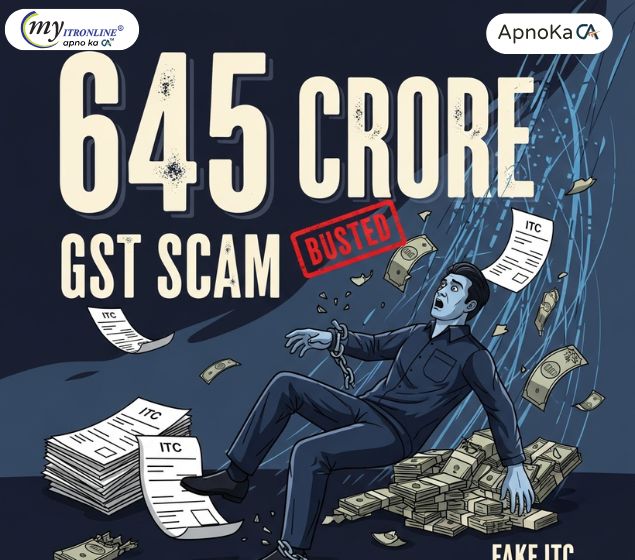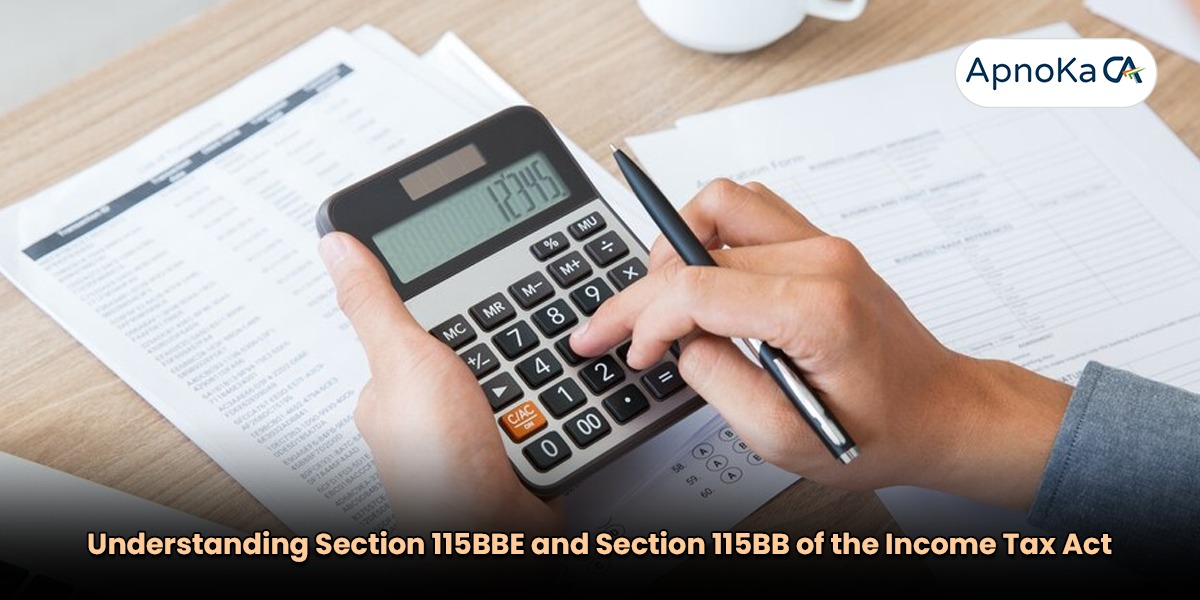# taxevasion
12 posts in `taxevasion` tag

Seven Years in Jail for Two PAN Cards: A Tax Evasion Warning
A recent court judgment has made it clear that holding more than one PAN card is no longer just a minor issue with a 10,000 fine. In a high-profile case, two individuals were sentenced to seven years in jail for possessing duplicate PANs, one of which was forged. The ruling shows that when a second PAN is linked to fraud or forgery, it becomes a criminal offense under the IPC. Taxpayers with duplicate PANs must act quickly and surrender the extra card to avoid severe legal consequences.

645 Crore GST Scam Busted: The Fall of the Fake ITC Mastermind
The Directorate General of GST Intelligence (DGGI) has uncovered a massive 645 crore fake Input Tax Credit scam. Mastermind Mukesh Sharma created 229 dummy companies to issue fraudulent invoices without actual supply. His arrest under the CGST Act highlights the growing crackdown on GST fraud and its implications for honest businesses.
.jpg)
Rule 86B Explained: How ITC Utilization is Limited Under GST
The CGST Rules 2017's Rule 86B, which restricts the use of Input Tax Credit (ITC) to settle GST liabilities, is thoroughly explained in this article. Along with useful examples and advantages, it discusses the rule's objectives, applicability, exemptions, and effects on businesses.
Understanding Section 50C of the Income Tax Act: Capital Gains on Real Estate Sales
Property sellers are prohibited by Section 50C of the Income Tax Act from undervaluing real estate transactions in order to avoid paying taxes. If the stamp duty value is more than the real consideration, this clause treats it as the considered selling price. This blog offers a thorough explanation of Section 50C's operation, as well as its consequences for capital gains, exemptions, dispute settlement procedures, and the safe harbor limits that have been included in more recent modifications.
.jpg)
Understanding Section 39 of the Income Tax Act: Powers of Tax Recovery and Asset Attachment
Tax authorities may seize and sell a taxpayer's assets in order to collect unpaid taxes, according to Section 39 of the Income Tax Act. Additionally, recovery against other parties holding assets on behalf of the taxpayer is permitted under this clause. To make sure taxpayers understand their obligations and the repercussions of tax defaults, the blog examines the essential components, recovery procedure, and consequences for non-compliance.
.jpg)
Agreements to Avoid Double Taxation: A Complete Guide
The advantages, varieties, and ramifications of double taxation avoidance agreements (DTAAs) for global investment and commerce are all covered in this thorough study. Find out how DTAAs may encourage economic cooperation, reduce double taxation, and increase foreign investment.

Detailed Comparison of Section 115BBE and Section 115BB of the Income Tax Act
The Indian Income Tax Act includes specific provisions for different types of income, notably Sections 115BBE and 115BB. Section 115BBE targets unexplained income and aims to curb tax evasion by imposing a higher tax rate, while Section 115BB deals with winnings from lotteries, game shows, and similar sources. This blog provides a detailed comparison of these sections, highlighting their objectives, applicability, tax rates, and the consequences for taxpayers. Understanding these sections is crucial for ensuring compliance and avoiding penalties.

Sections 269SS and 269T of the Income Tax Act
The Income Tax Act has provisions called Sections 269SS and 269T that limit cash transactions for loans and deposits over Rs. 20,000 in an attempt to prevent tax evasion and encourage transparency. Such amounts cannot be accepted in cash according to Section 269SS, and cash repayment is limited according to Section 269T. Penalties for noncompliance may equal the cost of the transaction. This blog offers a thorough explanation of each of these areas, as well as helpful advice on how to comply.

Tax Evasion vs. Tax Fraud: Understanding the Differences and Importance of Reporting Tax Evasion
Tax evasion and tax fraud are two common forms of tax-related crimes. While they may seem similar, they have distinct meanings and consequences. Tax evasion involves the use of illegal means to avoid paying taxes, while tax fraud involves the intentional misrepresentation of information on a tax return. This blog post explores thedifferences between tax evasion and tax fraud, and the importance of reporting tax evasion.

Understanding the New Scrutiny Guidelines for ITRs (FY 2024-25)
The new scrutiny guidelines for ITRs (FY 2024-25) provide transparency in the tax department's functioning and bring in a data-driven approach for identifying cases for scrutiny assessment. This blog post demystifies the new scrutiny guidelines for ITRs (FY 2024-25) and provides a comprehensive guide for taxpayers to ensure that they are compliant with the tax laws and avoid any potential scrutiny.

Understanding Penalties for Under-reporting and Misreporting Income under Section 270A of the Income Tax Act
Section 270A of the Income Tax Act imposes penalties on taxpayers who under-report or misreport their income. This blog post provides a detailed explanation of the provisions of Section 270A, including the definition of under-reported income, the instances of under-reporting, and the calculation of the penalty. It also discusses the consequences of non-compliance and provides tips for avoiding penalties.

Taxman on High Alert: CBDT Cracks Down on Evasion with Transaction Reporting
In a move to strengthen tax compliance and curb evasion, the Central Board of Direct Taxes (CBDT) in India is mandating "reporting entities" like banks, fintech companies, and property registrars to submit details of all high-value transactions conducted during the financial year 2022-23. This blog post explains what this means, who it affects, and why the CBDT is taking this step.
